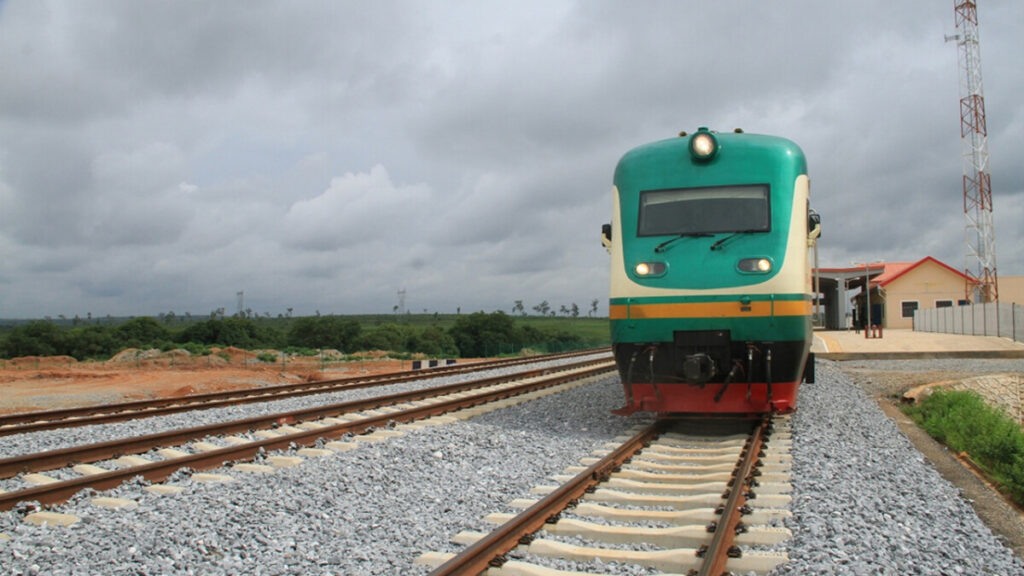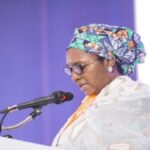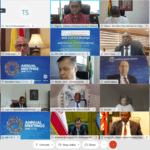In the light of the popular saying that what is worth doing is worth doing well, the Federal Government has, for the second year running, lived up to its promise to return the national budget to its January to December cycle thereby ensuring its early in the year presentation in order to ensure its appropriate and timeous implementation.
By this, Nigerians have to take this government seriously because the Honourable Minister of Finance, Budget and National Planning, Mrs. Zainab Ahmed, and her national economic management team have repeated the feat that hitherto was seemingly impossible in Nigeria. Just like last year, Ahmed and her team have plausibly made it possible for the budget proposal to be ready on record time.
A few days ago, President Muhammadu Buhari presented N13.08 trillion Budget 2021 to the joint session of the National Assembly, just as early as it was done last year. The estimate is N2.28 trillion higher than the 2020 revised budget of N10.805trillion.
In his speech at the presentation of the Budget 2021 themed ‘Budget of Economic Recovery and Resilience’, Mr. President, who stated that the budget is aimed at promoting economic diversity and enhancing social inclusion, said, “for the first time in recent years, we commenced the implementation of this year’s capital budget in the first quarter.”
Referring to the government’s efforts to sustain the Nigerian budget’s January to December cycle, he stated: “As at 15th September 2020 a total of about N1.2 trillion had been released for capital projects. Every federal ministries departments and agencies (MDAs) has received at least 50 percent of its 2020 capital expenditure budget, in line with my earlier directives.”
The National Assembly had made tremendous efforts in approving the revision of the 2020 – 2022 Medium-Term Expenditure Framework and Fiscal Strategy Paper, and passage of the 2020 Appropriation (Repeal and Amendment) Act, in response to the coronavirus pandemic.
In line with the government’s commitment, Buhari-led government has worked extra hard to ensure early submission of the 2021 –2023 Medium-term Expenditure Framework and Fiscal Strategy Paper, as well as the 2021 Appropriation Bill.
It is the hope of the Executive that the National Assembly will pass this Bill into law early enough to enable implementation by 1st January 2021, given the collaborative manner in which the budget was prepared.
In the course of his address, Mr. President had presented the highlights of the budget proposals for the next fiscal year, apart from which the Honourable Minister of Finance, Budget and National Planning had provided the full details of the proposals.
The 2021 Budget was prepared amidst a challenging global and domestic environment due to the persistent headwinds from the pandemic. The resulting global economic recession, low oil prices and heightened global economic uncertainty have obviously had important implications for our economy.
Of course, the Nigerian economy is currently facing serious challenges, with the macroeconomic environment being significantly disrupted by the pandemic. Real Gross Domestic Product (GDP) growth declined by 6.1 percent in the second quarter of 2020. This ended the 3-year trend of positive, but modest, real GDP growth recorded since the second quarter of 2017. But, through the collective efforts, the economy performed relatively better than that of many other developed and emerging economies.
The GDP growth is projected to be negative in the third quarter of this year though. As such, the economy may lapse into the second recession in four years, with significant adverse consequences. However, the government is working assiduously to ensure a rapid recovery in 2021. It has remained committed to implementing programmes to lift 100 million Nigerians out of poverty over the next 10 years.
As skills’ deficits have relegated employment opportunities in the formal economy, various skills’ development programmes are being implemented simultaneously to address this problem frontally. For instance, the government is implementing the special public works programme to provide employment opportunities to 774,000 youths across the 774 local government areas of Nigeria. It has also recently introduced the N25 billion Nigeria Youth Investment Fund.
For the first time in recent years, government commenced the implementation of this year’s capital budget in the first quarter. As at 15th September 2020, a total of about N1.2 trillion had been released for capital projects. Every federal ministry department and agencies (MDA) has received at least 50 percent of its 2020 capital expenditure budget, in line with Mr. President’s earlier directives.
Though revenue generation remains the government’s major challenge. Nevertheless, government is determined to tackle the persisting problems with domestic resource mobilisation, as there is a limit to deficit financing through borrowing. Government believes time has come for to maintain a healthy balance between meeting the growing expenditure commitments and the long-term public financial health.
Over the last year, this administration has implemented several priority projects and has delivered on key policies, programmes and projects in these priority areas. In agriculture, government has recorded appreciable success in rice and other crops, mainly through the Anchor Borrowers Programme and the Presidential Fertilizer Initiative, anchored by the Central Bank of Nigeria (CBN) and the Nigeria Sovereign Investment Authority, respectively. The government is also accelerating the construction of 337 rural roads around key agricultural corridors to enhance access to market and reduce post-harvest losses. These efforts have reduced the adverse impact of coronavirus on the food availability, prices and security.
The government has made progress on the railway projects connecting different parts of the country. The Lagos-Ibadan Line will soon be operational. The Abuja-Kaduna Line is running efficiently. The Itakpe-Ajaokuta Line was finally completed after over 30 years since it was initiated and commissioned in September 2020.
Arrangements are underway to complete the Ibadan-Kano Line. Also, work will soon commence on the Port Harcourt-Maiduguri Line and Calabar-Lagos Coastal Line, which will connect the Southern and Eastern States to the North, and the South-South as well as South-East to the North, and South-West, respectively. The Second Niger Bridge is at about 46 percent completion, hoping to commission the project before the end of its tenure in 2023. It has awarded several contracts to rehabilitate, reconstruct and construct major arterial roads, in order to reduce the hardship to commuters and increase economic activity.
To bridge the infrastructure deficit, government also is implementing innovative financing strategies to pull-in private sector investment. The infrastructure company, which Mr. President recently approved, will become a world-class infrastructure development vehicle, wholly focused on making critical infrastructural investments in Nigeria. This company will raise funding from the Central Bank of Nigeria (CBN), the Nigeria Sovereign Investment Authority (NSIA), the Africa Finance Corporation (AFC), pension funds as well as local and foreign private sector development financiers.
Under the Road Infrastructure Tax Credit Scheme, government is undertaking the construction and rehabilitation of over 780km of roads and bridges, nationwide, to be financed by the grant of tax credits to investing business. Ongoing projects under this scheme include: Construction and rehabilitation of Lokoja-Obajana-Kabba-Ilorin Road Section II (Obajana-Kabba) in Kogi and Kwara States; construction of Apapa-Oworonshoki-Ojota expressway in Lagos State; and construction of Bodo-Bonny road with a bridge across the Opobo Channel in Rivers State.
In view of all these that this administration has done, and are willing to do more, Nigerians have to take this government seriously.






